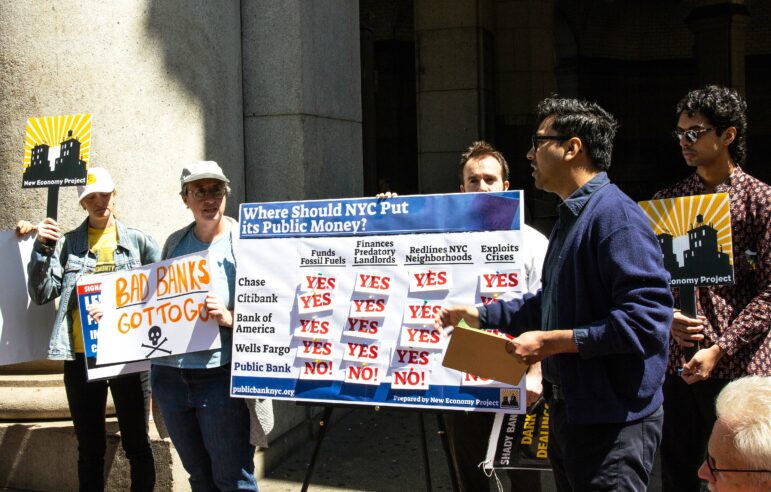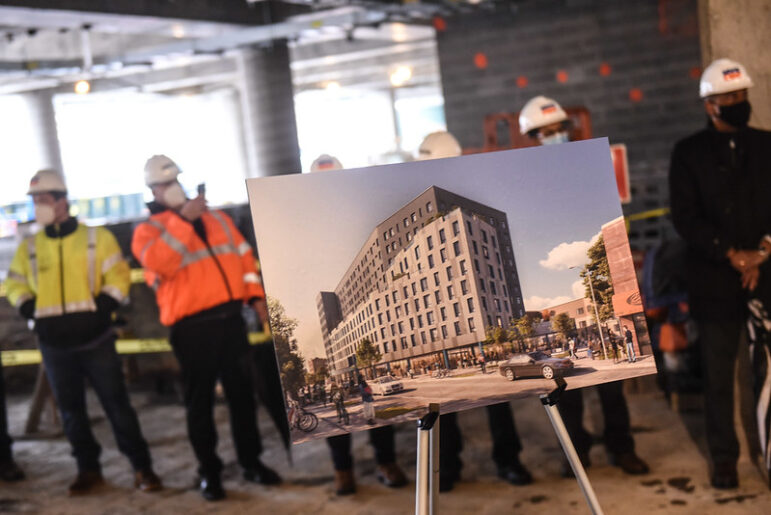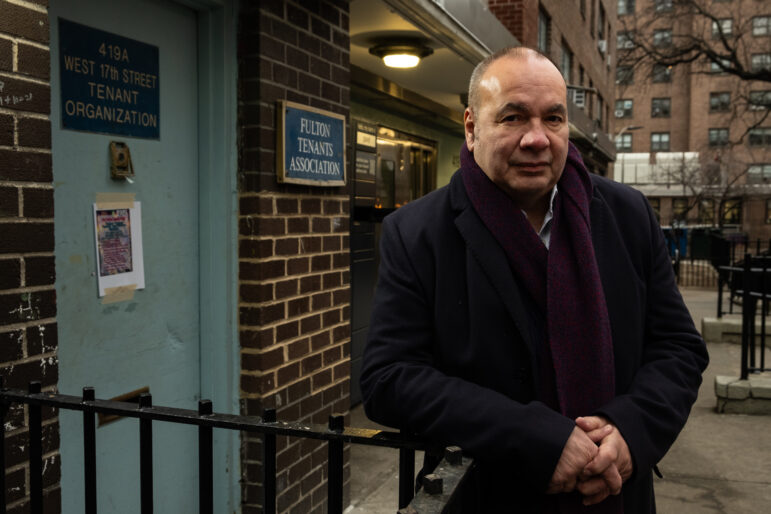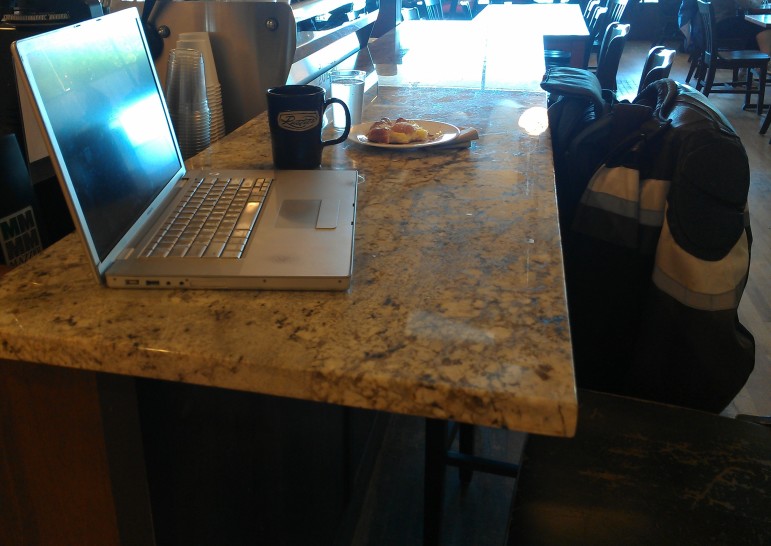
Andrew Bogott
The new office.
Everybody used to know what you meant when you said “I got a job.” Not anymore. Not when more than 40 percent of Americans work outside the single-employer full-time norm. Instead we have the “gig economy,” the “precariat,” freelancers, app-serfs, part-timers, temps. New York is one of the centers of this new world of work.
Some of the new ways of working spring from desires of young workers for creativity and control, or from innovation and efforts by workers to find alternatives to work that restricts pursuing education or childcare. The media likes to focus on young and educated, usually white, creative workers in the digital economy seeking escape from the monotony of dreaded desk-jobs.
But the veneer of choice masks an economic and social sea change. Contingent work is one piece of a shift that is disrupting the basic formula of employer, employee and compensation that has been the norm – tested and contested – since the Industrial Revolution. Up and down the economic ladder, employers have seized upon openings to sweep away old responsibilities to minimize costs and leave workers and society at large holding the bag.
Domestic, agricultural, care-workers, and the informal sector – largely women, immigrants, and people of color – have long been excluded from the full-time single employer formula. Now, many more workers are confronting a lack of viable choices for living-wage employment and are working in the wide wild space without many basic regulations, protections, and safety net.
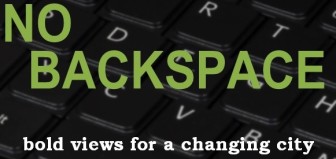
No Backspace is City Limits' new blog featuring a recurring cast of opinion writers passionate about New York people, policies and politics.
The list of basic protections that just don’t cover many of these new and not-so-new ways of working is long. A part-time worker with multiple jobs never gets overtime and has no protections from dangerous overwork. Freelancers aren’t covered by wage theft provisions, and the Freelancer’s Union found workers get stiffed an average of over $6,000 a year. FedEx’s so-called independent contractors have to buy their trucks, scanners, and uniforms, without overtime or other protections. Employment discrimination protections, already difficult for employees to pursue and meet the high burdens of proof, don’t protect freelance or consultant ‘gig economy’ workers from an already tilted labor market. Until 2014, interns in New York couldn’t claim sexual harassment in the workplace; many contingent workers still fall through the cracks. Day-laborers hurt on a worksite won’t get workers compensation, or accommodation for a disability. App-based delivery workers racing around the winter city to keep customer ratings high don’t get sick days. And non-employees lose the right to organize and protection (however limited in reality) from retaliation.
On the benefits side, much of the fraying safety net, like unemployment insurance and the right to take medical or family leave, remains tied to working as a standard employee. And fights to obtain crucial benefits like sick leave or parental leave continue to link access to basic needs to the employer model even as it shrinks and shifts.
In the face of vastly unequal power and resources, contingent workers and their allies are waging fights with creativity and persistence. Retail workers are organizing for scheduling protection, just hours, and an end to on-call work so they can pick up their children, go to school, and better predict their paychecks. Lawyers and attorneys general around the country fight phony independent contractor designations that leave injured workers paying for their own care. Seattle passed a bill allowing Uber drivers to unionize. Right now, New York City is considering a “Freelance isn’t Free” law, backed by the Freelancer’s Union and supported by many labor unions and worker organizations, to help freelance workers get paid.
These are the front-line contests to define the new economy. Like in past moments of change, workers are playing catch up. Any student of labor history has seen this pattern all too often, and we can be certain that employers will exploit the gaps and identify new ways to lower standards faster than we can stop them. We can be just as certain that the downsides of these new forms of work will fall hardest on the large portion of workers, usually women, immigrants, and people of color, whose work has been excluded from legal protections since long before the growth of the ‘gig economy’ seized the spotlight.
So these local battles about the lives of real people are part of a larger fight over how we as a society are going to function. If the way we protect, regulate, and compensate work applies to a vanishing share of the things people do for work, we have a responsibility both to tackle the specific abuses workers face now and to think big about what new forms we need to create. How should we define and regulate work? How should we rethink how we meet people’s basic living needs? I hope to use this space for an ongoing conversation about the transformation of work that is playing out in New York City and across the country.

Katie Unger is an independent strategic consultant and fourth-generation New York labor activist. She has spent more than a decade developing organizing campaigns in the fast-food, laundry and other industries. Katie recently served the City of New York working with communities on progressive policies as a Deputy Commissioner of the Mayor’s Community Affairs Unit. @KungerNYC



